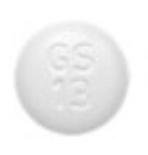Jesduvroq Side Effects
Generic name: daprodustat
Medically reviewed by Drugs.com. Last updated on Aug 19, 2024.
Note: This document provides detailed information about Jesduvroq Side Effects associated with daprodustat. Some dosage forms listed on this page may not apply specifically to the brand name Jesduvroq.
Applies to daprodustat: oral tablet.
Important warnings
This medicine can cause some serious health issues
Oral route (tablet)
Increased Risk of Death, Myocardial Infarction, Stroke, Venous Thromboembolism, and Thrombosis of Vascular Access. Daprodustat increases the risk of thrombotic vascular events, including major adverse cardiovascular events (MACE).Targeting a hemoglobin level greater than 11 g/dL is expected to further increase the risk of death and arterial venous thrombotic events, as occurs with erythropoietin stimulating agents (ESAs), which also increase erythropoietin levels.No trial has identified a hemoglobin target level, dose of daprodustat, or dosing strategy that does not increase these risks.Use the lowest dose of daprodustat sufficient to reduce the need for red blood cell transfusions.
Serious side effects of Jesduvroq
Along with its needed effects, daprodustat (the active ingredient contained in Jesduvroq) may cause some unwanted effects. Although not all of these side effects may occur, if they do occur they may need medical attention.
Check with your doctor immediately if any of the following side effects occur while taking daprodustat:
More common
- blurred vision
- chest tightness
- dizziness
- fever
- headache
- hoarseness
- irritation
- joint pain, stiffness, swelling
- nervousness
- pounding in the ears
- redness of the skin
- slow or fast heartbeat
- swelling of the eyelids, face, lips, hands, or feet
- tenderness, pain, swelling, warmth, skin discoloration, and prominent superficial veins over the affected area
- trouble breathing
- trouble swallowing
Less common
- blood or black, tarry stools
- chest pain or discomfort
- confusion
- constipation
- difficulty in speaking
- double vision
- inability to move the arms, legs, or facial muscles
- inability to speak
- nausea
- pain or discomfort in the arms, jaws, back, or neck
- sever stomach pain
- slow speech
- sweating
- vomiting
- vomiting of blood material that looks like coffee grounds
Rare
Incidence not known
- agitation
- back pain
- coma
- drowsiness
- hallucination
- mood or mental changes
- seizures
- stiff neck
- unusual tiredness or weakness
For healthcare professionals
Applies to daprodustat: oral tablet.
General
The most common adverse reactions observed in at least 10% of patients treated with this drug were hypertension, thrombotic vascular events, and abdominal pain. Nineteen percent of patients permanently discontinued this drug due to an adverse reaction.
Cardiovascular
- Very common (10% or more): Hypertension (24%)[Ref]
Gastrointestinal
- Very common (10% or more): Abdominal pain (11%)[Ref]
Abdominal pain included unspecified abdominal pain, upper abdominal pain, abdominal discomfort.[Ref]
Hematologic
- Common (1% to 10%): Adjudicated thrombotic vascular events (deep vein thrombosis, myocardial infarction, pulmonary embolism, stroke, vascular access thrombosis)[Ref]
Hypersensitivity
- Common (1% to 10%): Hypersensitivity[Ref]
Hypersensitivity included rash, urticaria and dermatitis.[Ref]
Nervous system
- Common (1% to 10%): Dizziness[Ref]
References
1. (2023) "Product Information. Jesduvroq (daprodustat)." GlaxoSmithKline
Frequently asked questions
More about Jesduvroq (daprodustat)
- Check interactions
- Compare alternatives
- Pricing & coupons
- Drug images
- Dosage information
- During pregnancy
- FDA approval history
- Drug class: miscellaneous uncategorized agents
- Breastfeeding
- En español
Patient resources
Professional resources
Related treatment guides
Further information
Jesduvroq side effects can vary depending on the individual. Always consult your healthcare provider to ensure the information displayed on this page applies to your personal circumstances.
Some side effects may not be reported. You may report them to the FDA.

